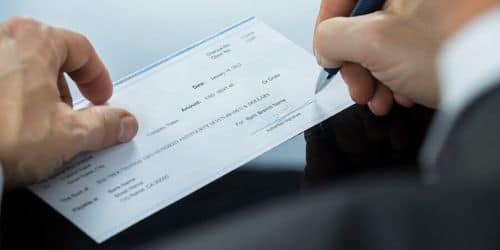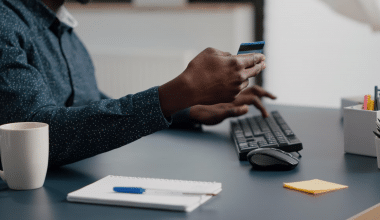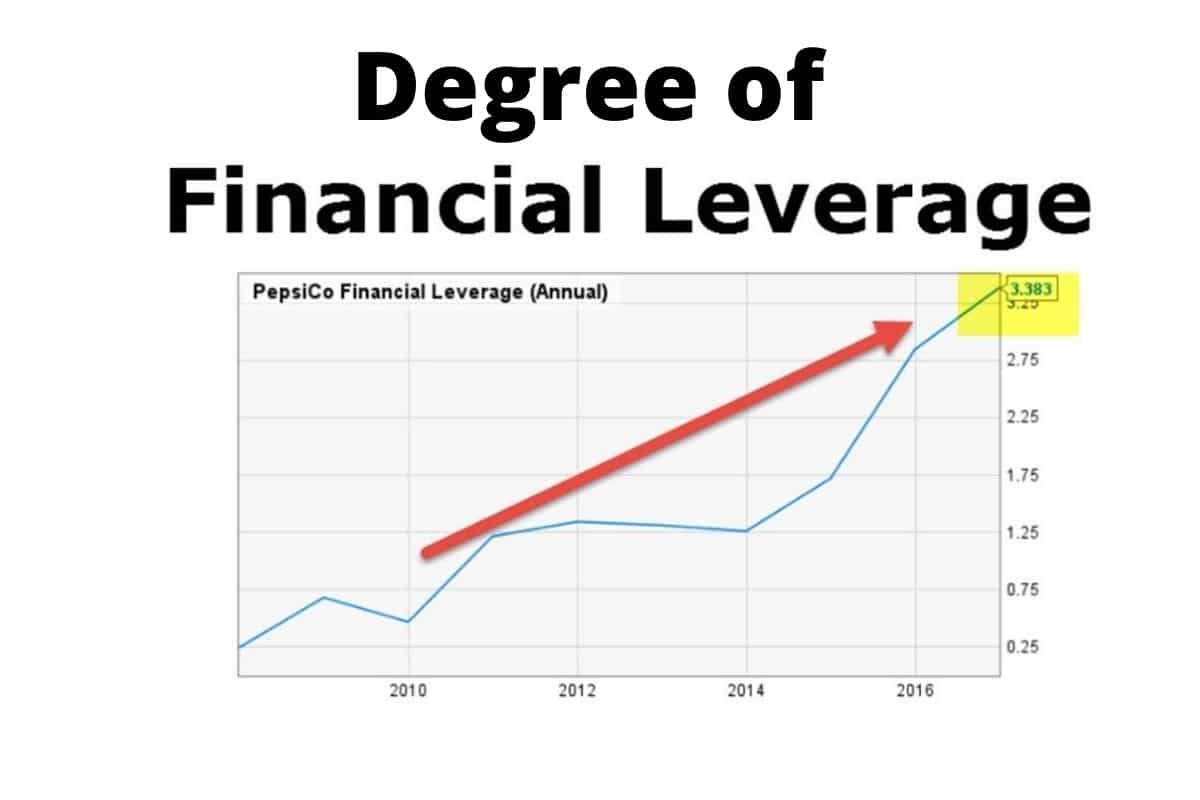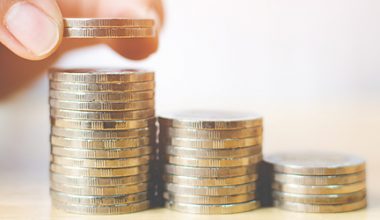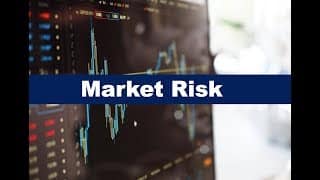When you’re expecting a large payment, you might wonder what the safest way to get it is. A certified bank check is an official bank-guaranteed check to make such a payment. Most people think that certified bank checks are safer and less likely to be used in scams than personal checks. However, it is necessary to be on the lookout for scams because it may be difficult to pursue a remedy. This article will guide you on how to get a certified bank check and how to avoid unwitting scams.
What Is a Certified Bank Check?
A certified check is similar to a regular personal check from a checkbook but with one major difference. The bank of the check writer ensures a certified check. As long as there is enough money in the bank account of the check-writer, the bank will accept the check.
Certified checks provide an extra level of assurance that the transaction will go through because it ensures that funds are available to pay for it. Additionally, it reassures both the buyer and the seller that the transaction will result in the outcomes they desire. For most purchases, you won’t need a certified check. They can only use it for bigger deals, like buying a car from private sellers, making a down payment on a house, buying land and recreational vehicles, etc.
Is a Certified Bank Check the Same as a Cashier’s Check?
The bank signs cashier’s checks, whereas the consumer signs certified checks. Cashier’s checks and certified checks are both official bank checks. Both are simple to obtain, relatively affordable, and are thought to be more secure and less vulnerable to fraud than personal checks.
How Does A Certified Bank Check Work?
A certified check may be appropriate for any large transaction in which the buyer and seller do not know each other well and do not have easy access to online payments or other bank payment options, like ACH or wire transfer.
Using a certified check provides additional security and reassurance to both the buyer and seller. Paying with a check saves the buyer time and money and also demonstrates their good faith by proving that they have the funds in their bank account as agreed.
A certified check functions similarly to a regular personal check, except that after the participant writes the check, the bank will certify and stamp it to show that the check is valid and that there are sufficient funds in the account. Depending on your bank and the terms of your account agreement, the bank may charge a small fee for the certified check. Some banks do not provide certified checks, so you should get in touch with your local bank branch to find out if they can offer this service. If they cannot, ask if they have any other options, such as a cashier’s check, which could be an equally effective solution.
Although they are not synonymous, some banks and credit unions may use the terms “certified check,” “cashier’s check,” and “official check” interchangeably. A certified check and a cashier’s check are both types of official checks, but the parties who sign them differ. You could request a “certified check” but receive a cashier’s check instead. You should be able to provide your buyer with the preferred method of payment if you know what terms to use and what options you have.
Can I Get Certified Check From Any Bank?
Cashier’s checks are made by all banks. You can ask for a cashier’s check at any of them or at a credit union. However most banks and credit unions (but not all) only give out cashier’s checks to their customers.
How to Get a Certified Bank Check
A bank or credit union can issue you a certified check. While you can get a certified check from any bank, it’s probably easier to go to a bank where you already have an account. It may be helpful to call the institution ahead of time to find out if it offers certified checks and if there are any additional requirements.
Start by entering the check amount, the recipient’s name, and any notes. After that, you will have to verify your identity and demonstrate to the bank or credit union employee that the funds are available in your account. Banks may require photo identification for verification. The teller or a bank officer will sign off, or “certify,” the check and stamp it once you’ve written it.
Remember that most financial institutions will charge a fee for certified checks. The fee is dependent on the account, the institution, and the amount of the transaction. However, you can expect to pay anywhere from $5 to $15 on average.
The Upsides of Using a Certified Check
When purchasing expensive items, a certified check comes in handy. Carrying that much cash on you when buying an expensive appliance or making home improvements is both impractical and dangerous. It’s more convenient and safer to write a check, but the payee may want more safeguards than a standard personal check provides. The recipient of a certified check knows that the bank has verified the check, signature, and availability of funds. It is a reliable source of funds.
The Downsides of Certified Checks
One of the downsides of certified checks is that once you hand over the check, you cannot reverse the payment. As soon as the recipient of the check deposits or cashes it, the money will get out immediately.
Another downside, though not as severe, is that certified checks do incur fees. These fees are usually not incredibly expensive. Moreover, it may be worthwhile to pay a fee to make a secure and guaranteed payment.
Using certified checks is a safe and secure way to transfer money. However, fraudsters can easily copy a certified check. Of course, if you’re the one who’s sending the check, you’re safe. You may want to be cautious if you’ve requested payment in the form of a certified check, especially if you don’t know or trust the person who’s sending the check.
If you suspect a certified check is fraudulent, look for possible signs such as typos or anything that appears to be “off.” Check the bank’s information against the bank’s online information. To ensure the check is valid, you should also call the bank, not the number on the check.
You can avoid becoming a victim of fraud if you follow these steps. This is because anyone who is scammed will be held accountable for any money taken out of the check’s proceeds.
The Check-Certification Process Verifies:
- The person who writes the check has the right to write checks on that account.
- The check is genuine and has not been washed or chemically treated.
- The signature is legitimate.
- The account is currently active and in good standing.
- The funds are available and will be set aside for that check for a set period.
Does a Certified Bank Check Clear Immediately?
Federal rules say that cashier’s, certified, or teller’s checks that are deposited into an account must be available for withdrawal no later than the next business day. This is the same as for cash deposits, but only if certain conditions are met.
Which Is Better Bank Check or Certified Check?
Certified checks are safer than personal checks since the bank verifies their legitimacy and the availability of funds in the linked account in more detail.
How Long Does It Take To Get a Bank Certified Check?
Since you have to go to your bank or credit union in person to get a certified check, it usually only takes about 10 minutes. Try going to your bank when it’s not as busy to avoid waiting.
Certified Bank Check Scams
Many consumers have fallen victim to certified bank check scams. A certified bank check is regarded as a relatively risk-free instrument and is thus frequently used as a reliable payment method for goods and services by consumers.
However, in recent years, the use of certified bank checks as a form of payment to customers has made them an appealing target for fraudulent activity. After depositing the check, the amount on the check is immediately “available” for withdrawal, but these funds do not belong to the customer if it turns out to be fake. Detecting a fraudulent cashier’s check may take weeks. The consumer may have irrevocably wired or otherwise used the funds while waiting for the fraud to be detected, only to discover that they owe the bank the full amount of the certified check they had deposited. This is called “cashing out” the funds.
If you want to avoid becoming a victim of certified bank check scams, the OCC has put together a consumer advisory on the subject. Although this advisory focuses on cashier’s checks, the information may be useful if you conduct business with other official bank instruments such as money orders and official checks. Commonly Certified Bank Check Scams
While each scam involving a fraudulent bank check is distinct, the following are some of the more common scenarios:
#1. Remote Work or Work at Home Check Scams
You receive payments in the form of certified checks, which you are to deposit into your account and forward to someone else. Work-at-home check processing jobs are common, but these schemes can be problematic. In some cases, you may be laundering money for criminals. In other cases, the first few payments are fine, but after they’ve gained your trust, you’ll get a fake check and lose money.
#2. Mystery Shopper Scams
When you get a notification to serve as a mystery shopper, your bank will instruct you to deposit a certified check you’ve received. You will spend a portion of your funds at designated stores, transfer a portion of your funds to a third party via wire transfer, and keep the remainder. Because the check is fraudulent, you lose all of your money.
#3. Certified Checks Are Used to Buy Goods and Services
You sell products, and a buyer sends you a certified bank check for the agreed-upon price. The buyer pays for the goods, but once they receive them, you discover that the check is fake.
#4. Rental Property Scams
Someone who wants to rent your property is willing to pay the first and last month’s rent, as well as the security deposit, with a cashier’s check before they’ve even seen it. This is because, they say, they’re starting a new job and don’t have time to visit the property. The day after you deposit the check, they tell you there was a problem with the job and they won’t be there, so they don’t need the rental. You may keep the security deposit, but they would prefer that you return a portion of the rent. When you send the refund, you’ll discover that the check was a forgery.
As a result of these scams, you will get the fraudulent check back unpaid. The bank will then deduct the check amount from your account or seek repayment from you. This will cause you to lose either the goods you sold or the money you sent to the third party or both.
Tips to Avoid Certified Bank Check Scams
#1. Know the Check Sender
Accepting checks from people you don’t know is risky. If the check is a forgery, pursuing a remedy may be difficult.
#2. Check to see if the Check Is Legitimate.
Call or go to the financial institution’s branch where the check is drawn. The financial institution should be able to assist you in determining whether or not the issued check is genuine. Don’t rely on the phone number of the financial institution listed on the check; it could be a forgery. Conduct your research and locate the institution’s actual phone number.
#3. Check to see if the Check Has Cleared.
Call your financial institution and confirm that the check has cleared and the funds have been deposited into your account.
#4. All Documents Should Be Saved.
Keep all files about a certified bank check. This documentation may be useful if something goes wrong.
When Should You Use a Certified Check?
If you want to buy something from a stranger you met online or put a down payment on a house, you’ll probably need a certified check. In these situations, the certification process protects the seller from getting a check that has already been cashed.
Conclusion
I hope this article will guide you on how to get a certified bank check and how to avoid unwitting scams.
Certified Bank Check FAQs
Is a certified check the same as a bank check?
A certified check is more like a personal check than a cashier’s check: The money comes directly from your bank account, which means you’re liable if it bounces.
How much does a bank check cost?
Cashier’s checks typically cost between $10 and $15. Some banks waive the fee for specific account holders; inquire with your bank. Bank of America, for example, charges $15 for a cashier’s check but waives the fee for customers who meet certain balance requirements.
Can certified checks bounce?
A certified check adds an extra level of assurance that the check is valid and will not bounce by ensuring the availability of funds for the transaction.
